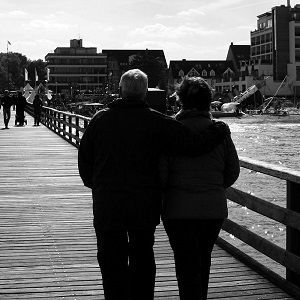Labour will never return to power unless it wins over older voters
Amid all the dozens of election post-mortems, one simple truth is hiding in plain sight. The reason that Ed Miliband is not prime minister today, is because Labour was rejected by older people. And until the Labour party wins back...
Amid all the dozens of election post-mortems, one simple truth is hiding in plain sight. The reason that Ed Miliband is not prime minister today, is because Labour was rejected by older people. And until the Labour party wins back the trust of grey voters, there will not be a Labour prime minister again.
This year Labour won just 23 per cent of the votes of people aged over 65, according to Ipsos Mori. That’s a fall of 8 percentage points since 2010, and a fall that proved decisive. Labour would have won the election, if no one over the age of 55 had voted: among people below this age, the party secured 35 per cent of the vote and the Conservatives 34 per cent. But Labour won just 26 per cent of the votes of people aged 55 and over, compared to the Conservatives’ 43 per cent.
Ipsos Mori estimates for share of the vote in Great Britain, by age
 It’s true that older age-groups have always leant towards to the Tories. But this year’s result represents age polarisation on a far greater scale than in previous elections. While the Conservatives’ overall lead over Labour was unchanged, at 7 percentage points, among over 65s it increased from 13 to 24 points. Conversely Labour did far better among the under-35s than in 2010, as a result of the Lib Dem collapse.
It’s true that older age-groups have always leant towards to the Tories. But this year’s result represents age polarisation on a far greater scale than in previous elections. While the Conservatives’ overall lead over Labour was unchanged, at 7 percentage points, among over 65s it increased from 13 to 24 points. Conversely Labour did far better among the under-35s than in 2010, as a result of the Lib Dem collapse.
Conservative lead over Labour in Great Britain, by age group (percentage points)
 This growing age skew is bad news for Labour, because people over 65 now have far more voting power than younger age groups. Older people area powerful bloc, first of all, because they are numerous: people aged over 65 make up a quarter of adults in Great Britain. It is therefore right that their views and needs should have a strong pull on national debate. But when it comes to the ballot box, older people have even more weight: the Fabian Society estimates that up to 33 per cent of votes cast in 2015 may have come from people aged over 65. By contrast just 16 per cent were from under 34s, who comprise 29 per cent of adults.
This growing age skew is bad news for Labour, because people over 65 now have far more voting power than younger age groups. Older people area powerful bloc, first of all, because they are numerous: people aged over 65 make up a quarter of adults in Great Britain. It is therefore right that their views and needs should have a strong pull on national debate. But when it comes to the ballot box, older people have even more weight: the Fabian Society estimates that up to 33 per cent of votes cast in 2015 may have come from people aged over 65. By contrast just 16 per cent were from under 34s, who comprise 29 per cent of adults.
This amplified voting power, which gives rise to concerns about skewed political decisions, is caused by three things: older people are more likely to be eligible to vote (more of them are UK, Irish or Commonwealth citizens), they are more likely to be registered to vote, and they are more likely to use their vote. Taken together this has a huge impact on the balance of democratic power.
There is no reason to think these amplifying factors will unwind any time soon. In fact they could grow stronger. Current levels of migration mean that the number of people living in Britain without a right to vote will rise – but relatively few of them will be aged over 65. It is also expected that older people will comprise a higher proportion of registered electors as a result of Individual Voter Registration. This is because most pensioners have the demographic characteristics associated with high registration rates (they move home rarely and are less likely to reside in inner cities).
And on top of all that, older people’s voting power is growing due to the ageing of the population. In 2020 the ONS projects there will to be 1.16 million more adults over 65 in Great Britain than today – and 80,000 fewer 18 to 34 year olds. If there is no change in the proportion of each age-group who actually vote, this will mean an extra 850,000 votes cast by people over 65, and zero extra votes cast by people under 34.
This trend has very serious implications for Labour, if the party’s support remains concentrated amongst the young. If the 2015 voting pattern for each age-group is repeated in 2020, the Fabian Society calculates that there would be 520,000 more Conservative voters and 280,000 more Labour voters – a difference of 240,000 in the Conservatives favour. The Conservatives have a mounting advantage as a result of demographic change.
All this means that, for Labour to win again, a big change in age-based voting patterns will be needed. But what change? Jeremy Corbyn has spoken about his ambition to increase young people’s registration and turnout. From a democratic perspective these are vital objectives, but from the standpoint of winning the next election, the Fabian analysis shows that neither will make much difference.
If there was a very large improvement in both registration and turnout among younger age-groups (but no change in the age breakdown of party support) our projection for the Tories’ lead over Labour in 2020 falls by just one percentage point. This calculation assumes that levels of registration and turnout for each age group come to match those of the over-65s (95 per cent registration and 78% turnout across all age-groups). In reality this goal is implausible and yet it would still make little dent on the Conservative lead.
So only one thing will allow Labour to win more votes than the Conservatives in 2020 and that is for the party to hugely increase its support among older people. Today, as Labour looks ahead there is a mountain to climb. A Com Res poll published on 20th September gave the Conservatives a 28 percentage point lead among people aged over 65, compared to 24 points on election day.
But at least, now, the task is simple to grasp. To win an election, Labour must win the trust of older people. The sort of retirees who, in their millions, voted for Blair and Brown, must have faith in Labour again.
The Fabian Society is holding a fringe event at Labour conference on how the Party can win over older voters – Sunday 27th September, 12.30pm, Lancing Suite of the Brighton Holiday Inn. Register here.


